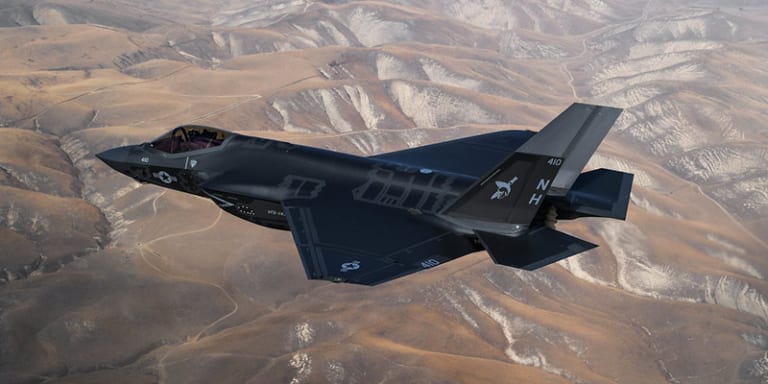
Israeli Prime Minister Benjamin Netanyahu is said to have condoned the sale of the advanced American F-35 Joint Strike Fighter to the United Arab Emirates after much public confusion about what was agreed to in the so-called “Abraham Accords” to normalize relations between the UAE and Israel. This means that the American reluctance to supply the fighter to an Arab state because of worries about preserving Israel’s military advantage should no longer be valid. But it also means that the Middle East region may be coming into a period of serious strategic changes in which the small Gulf country may play a very active role that allows it to expand its theater of operations despite its limited size, population, and armed forces.
The special features of this aircraft allow those states that possess it to have a major impact on these strategic changes. These features include its speed and stealth which make it practically undetectable by regular radar systems or stoppable by other known aircraft. To be sure, no organized or unorganized military force can be immune from its reach. In July 2019, Israeli F-35 aircraft were said to have been used in mysterious attacks on pro-Iran militias inside Iraq to destroy missile arsenals. Given their long range, the F-35s can be a threat to many other actors and states in the wider region such as Turkey and Iran. Israel’s Mossad chief Yossi Cohen minced no words when he said that Israel considers Turkey to be a real threat to its national security.
The UAE’s acquisition of the plane will influence the strategic theater of the Arabian Gulf as well as that of the eastern Mediterranean, from Libya to Turkey. In the Gulf, the UAE’s main military challenger is Iran but that is not in the field of air superiority. Even without the F-35, the UAE has maintained a superior air force for close to two decades now. Where there might be a threat is from other strategic assets such as maritime forces, asymmetric warfare from the Islamic Revolutionary Guards Corps, missiles, and Iran’s ability to blockade the Strait of Hormuz. There also is the continued Iranian occupation of the UAE’s islands of Abu Musa and the Greater and Lesser Tunbs.
The UAE cannot face up to all of these challenges from Iran, which confirms its need for allies in the region, such as Saudi Arabia, or for continued American support. No one can predict how future events will develop, but there always is a possibility that Saudi Arabia may obtain the F-35 if it chooses to normalize relations with Israel. In that case, the aircraft will be essential for their joint efforts if a dispute with Iran were to develop into conflict. For the time being, however, Riyadh has distanced itself from the possibility of normalizing relations with Israel. The United States, on the other hand, currently maintains a large air, land, and maritime presence in the Gulf and around it.
As for Libya, the UAE is known to support renegade General Khalifa Haftar in his challenge to the Tripoli-based Government of National Accord. His forces reached the outskirts of Tripoli with UAE assistance before they were repelled by GNA forces openly supported by Turkey. The UAE also recently sent F-16 fighters to join military maneuvers with Greece just as Abu Dhabi was sharpening its criticism of Turkey’s role in Libya and the eastern Mediterranean. Its acquisition of the F-35 thus can only enhance its ability to challenge Turkey anywhere in that theater. What makes this even more serious is the dispute between Ankara and Washington about the former’s ejection from the F-35 program that resulted in the sale of its aircraft back to the US military.
Still, however, this does not mean that the UAE will be a match for Turkey; its F-35 acquisition will remain only an asset in a complicated balance of power configuration in the region. What the F-35s will do is give the UAE leadership confidence in their ability to project their influence beyond what their small state ever imagined it could do. It is hoped that they realize that strategic ambition does not require sabre rattling, especially that they may not possess all the necessary tools for their assured defense.

